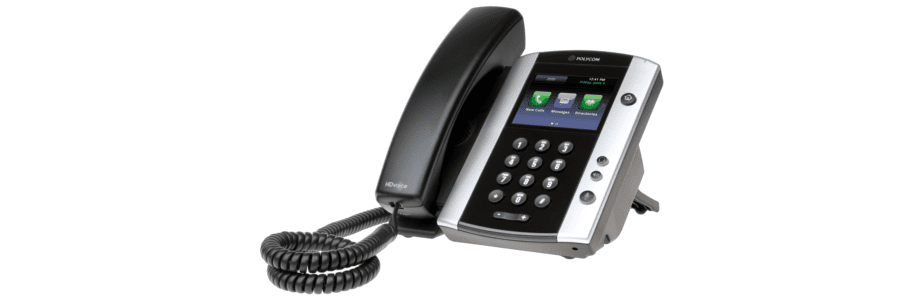Still not totally understood, VoIP telephones behave like normal business telephones but with some positive differences:
- The only hardware you need to purchase is the handsets.
- There isn’t any box on the wall, so you save cash on the initial outlay.
- VoIP calls are made over the internet through your broadband line
- Traditional calls are made over analogue telephone lines or ISDN.
- Each concurrent call requires it’s own ISDN channel which is costly, whereas VoIP only needs one broadband line but you get unlimited concurrent calls
- VoIP has the same features you get with an Avaya or Mitel system and more!
- new features can be added to VoIP at no extra cost as there isn’t any hardware to upgrade.
- VoIP calls are generally much cheaper, especially to other countries or mobiles.
- VoIP Handsets can be used anywhere in the world as long as it’s connected to an internet connection. This allows you to take your extension with you and get access to your UK call rates.
How does it work?
A VoIP handset looks like any other handset. Take this Polycom for example; it is full featured and has a great screen to see the presence of colleagues.
This handset simply plugs into your computer network instead of a phone socket. If you don’t have a spare computer network point, you can simply ‘piggy back’ your computer off of your phone!
Once connected to the computer network, the phone will boot up just like a regular phone, and just like a regular phone, It needs to talk to the platform. This is where the two differ. The VoIP phone will look for the platform through the internet, register itself and it’s ready for calls. A traditional handset will register itself with the box on the wall or in your comms cabinet.
Skip the fluff, what are the real benefits?
In the real world, it’s all about the flexibility and cost savings.
If any of the owners or executive team work from home occasionally, they can have a real physical handset at home that rings just as the office phones do. It could be you just want to be flexible, or you may want all business calls logged with times and durations so the users are accountable. Either way, full call reports are available.
Softphones are available too which are much cheaper than physical handsets. A softphone is a software phone that runs on your computer and is used in conjunction with a microphone and speakers or a headset. This is useful for ‘road warriors’ or again for people who occasionally work from home or travel abroad. It’s similar to Skype, but it’s actually part of your phone system.
Cost savings can be significant over traditional phone systems. Upfront costs are dramatically cut as you only need handsets; no more expensive hardware to buy, maintain and upgrade. Call rates are generally much cheaper too, especially calls to mobiles or abroad.
It just sounds to good to be true – what’s the catch?
At this point, there isn’t one. Over the last 10 years or so, VoIP has been maturing as it was adopted around the world; It’s now the standard for phone systems.
One objection I hear is what happens if the broadband line breaks? You loose your calls is the answer. But in turn, what happens if your phone line breaks? you loose your calls!
VoIP has two added benefits if something happens to your line:
- Within minutes, your VoIP provider can redirect your calls to mobiles.
- Your phone or IT provider can loan you a 3G / 4G router that uses the mobile network. All calls and internet access is routed over this device, so the business can still access the internet and make calls. Compare that to a traditional phone system where there’s nothing you can do until the phone lines are repaired.
VoIP telephones vs Traditional telephone systems is a big topic, but I hope this article helps you decide what to purchase if you are in the market for a new phone system and not sure what to do.


